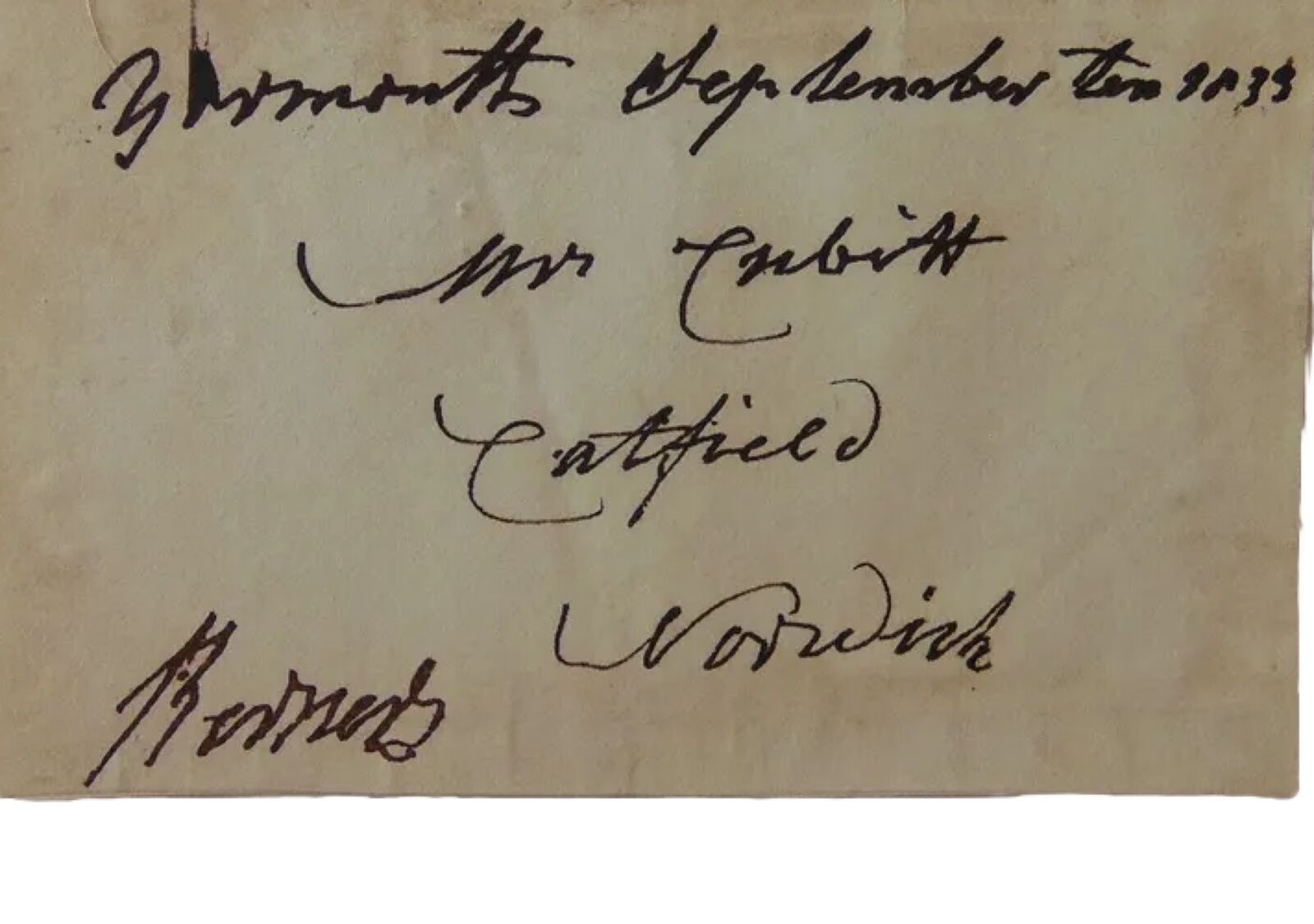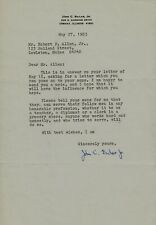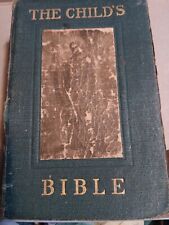When you click on links to various merchants on this site and make a purchase, this can result in this site earning a commission. Affiliate programs and affiliations include, but are not limited to, the eBay Partner Network.
Up for sale a RARE! "The Times" Sir Thomas Barnes Hand Written Note on 3X5 Card Dated 1833. This item is certified authentic by Todd Mueller and comes
with their Certificate of Authenticity.
ES-114A
Thomas Barnes (11 September 1785 – 7 May 1841) was
an English journalist, essayist, and editor.
He is best known for his work with The Times
which he edited from 1817 until his death in 1841. Barnes was the eldest son of John
Barnes, a solicitor, and his wife Mary, née Anderson. After his mother's
death, Barnes was raised by his grandmother before beginning his education at Christ's Hospital. When the school moved to Horsham
in 1902 he had a boarding house named after him. While he was there he was a
contemporary of Leigh Hunt and Thomas Mitchell, later a
prominent academic. From there Barnes went up to Pembroke College, Cambridge where he
excelled both academically and athletically. While at Pembroke, Barnes studied classics,
and he took his degree in 1808 as head of the senior optimes. After
considering a career as an academic, Barnes acceded to his family's wishes and
embarked on a career in the law, moving to London in 1809 and entering the Inner Temple.
While working at his new profession, Barnes joined the famous literary circle
of which Hunt, Charles Lamb and William
Hazlitt were prominent members. Barnes enjoyed the entertainments of
the West End, and he indulged his appetites
frequently, much to the detriment of his physical appearance. With his legal career characterised by drudgery, Barnes sought an outlet
for his talents. He found this through his friendship with Barron Field,
who was the theatre critic for The Times.
Through Field, Barnes met John Walter, who soon employed Barnes as a
journalist reporting on law cases, politics and the theatre. Upon Field's
retirement Barnes succeeded him as theatre critic, and in 1811 he became a
member of the parliamentary staff. As part of his duties he penned a number of
parliamentary sketches, which were later collected and published in a book, Parliamentary
Portraits, in 1815. During this period, he also wrote for Leigh Hunt's
publications the Examiner and the Reflector. Walter's trust in Barnes was soon
demonstrated when in 1815 Walter empowered him revise the controversial leading
articles written by the intemperate John Stoddart,
then the editor of the paper. Upon Stoddart's dismissal at the end of 1816
Barnes was named as his successor as editor, assuming a position which he held
until his death. As editor, Barnes came to enjoy a greater degree of control
over the paper than his predecessors, and received a share of ownership in the
paper. He used it to reshape the paper, analysing events rather than merely
summarising them, and making the leading article a central component of the
paper. With the Peterloo Massacre in August 1819 he inaugurated
a policy of support for the Whig opposition in
Parliament that contrasted with his predecessor's staunchly pro-Tory stance. He became a
close friend of Henry Brougham, who was an
important source of information for Barnes's leading articles. During Barnes's editorship, the
influence and the scope of The Times grew, and with it its prominence in
public affairs. Moved by what he saw during a trip to Ireland, Barnes became a
passionate supporter of Catholic Emancipation. By the early 1830s
his paper had earned the nickname "The Thunderer", with Robert Peel
declaring it to be "a powerful advocate of Reform" and his colleague Lord Lyndhurst describing
Barnes as "the most powerful man in the country." It was during this
period that Barnes shifted politically, opposing the Poor Law Amendment Act of 1834 and falling
out with Brougham. Barnes feuded with Lord Palmerston, who
manipulated public opinion to enhance his control of foreign affairs.
Palmerston leaked secrets to the press, published selected documents, and
released letters to give himself more control and more publicity, all the while
stirring up British nationalism. Barnes refused to play along with his
propaganda ploys.









